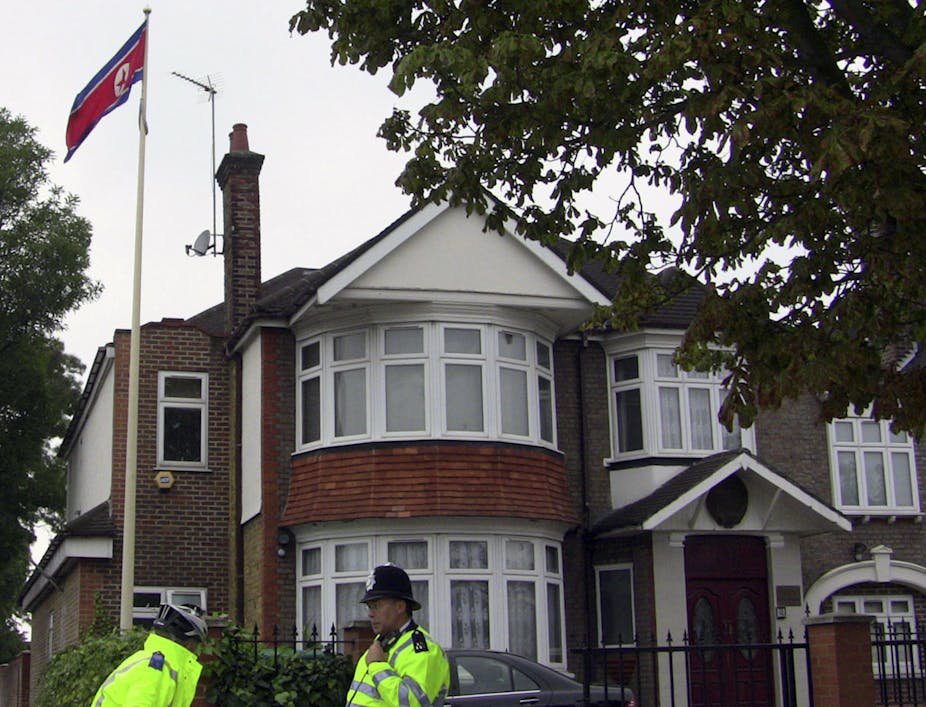The UK hosts one of the largest North Korean populations outside of North-East Asia. Since 2003, more than 1,300 North Koreans have applied for asylum in the UK – and 544 have been granted asylum. The Home Office, which decides who stays and who’s turned away, has rejected almost one-third of applicants. Why?
To be sure, the UK is far from the only country to which North Koreans migrate. High up the list, of course, is South Korea, where the number of North Korean refugees recently topped 31,000 people – more than 20,000 of whom have arrived in the past ten years alone. Since many North Koreans in South Korea struggle without adequate skills and education, South Korean taxpayers fund social adaptation training, housing subsidies and educational support.
Nonetheless, many North Koreans in South Korea feel forced to hide their origins – while others describe discrimination in South Korean schools and workplaces. The government resettles many North Koreans in low-income areas of South Korea’s major cities. Those who end up still living close to the border and surrounded by other North Koreans struggle to start a new life, and often feel anxious and conspicuous. Small wonder then that many end up moving on to other countries.
This so-called “secondary migration” is difficult for governments to document. North Koreans leaving South Korea generally travel on their newly acquired South Korean passports – and their decisions on where and when to migrate are shaped through interactions with migration brokers, other North Koreans, and state immigration policies.
Migration brokers take payment to provide guidance on how to migrate. Although many North Koreans have their own true stories of persecution to tell, brokers are able to offer migration “packages” to support migrants’ asylum claims in Western Europe or North America – often including ready-made stories of persecution for asylum claimants to tell.
North Korean migrants usually head for countries with economies and societies open to asylum seekers. When a government starts to regulate migration more tightly, North Korean migrant networks shift to another destination, redistributing the pressure across receiving states. For example, when the number of North Korean asylum seekers in Canada was pushed down in 2013, the number subsequently increased in Germany.
North Koreans in the UK
While those who emigrate from North Korea are clearly fleeing persecution, those who migrate elsewhere via South Korea may also have economic motives – not just employment and welfare benefits, but the prospect of Anglophone education. And that makes the UK a very desirable destination.
Most North Koreans in the UK live in the London suburb of New Malden, which has the largest Korean community in Europe. The neighbourhood’s main street is replete with Korean restaurants, travel agents and supermarkets – and there are several locally produced Korean language newspapers.

UK courts accept that all North Koreans have good reason to fear persecution should they return home. But the Home Office generally argues that North Korean secondary migrants are not genuine asylum seekers because they have rights of residency in South Korea and are by default citizens there. This is based on two documents: Article 3 of the South Korean constitution, which says: “The territory of the Republic of Korea (the ROK) shall consist of the Korean peninsula and its adjacent islands”; and the 2012 United Kingdom-South Korea Readmission Agreement, which defines South Korea as a Safe Country of Origin, meaning that asylum claims made by people who have travelled from there are unlikely to be considered “well-founded”.
The Home Office further struggles to differentiate between three groups of asylum seekers: North Koreans who first sought asylum in South Korea and acquired South Korean citizenship, those seeking political asylum via a third country outside the Korean peninsula, and ethnic-Korean/Chinese citizens posing as North Koreans.
At the end of 2017, North Koreans in London appealed to the UK government to help their fellow North Korean refugees. Their petition pointed out that China also does not recognise North Korean asylum claims, forcing many North Koreans who come there directly to return home – where, as escapees, they will likely be sent to political prisons.
All the while, the number of North Korean refugees continues to grow. The international community would do well to carefully consider the claims of individuals fleeing a country that the United Nations recently accused of “systematic, widespread, and grave violations of human rights”. To deport North Koreans who arrive via South Korea risks putting the political before the humanitarian. And by treating North Koreans as South Korean citizens by default, it also gives tacit support to the south’s territorial claims over the entire peninsula.
As things stand, the UK may be missing the opportunity to engage with individuals who might one day play a key role in a unified Korea. The government’s priority should be on determining the individual humanitarian status of North Korean immigrants, and basing claims for asylum on these findings – not on misguided ideas about how and why these people might have come to Britain in the first place.

